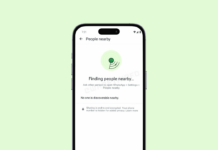Teen hacked into the reputed CIA director’s email account, James Clapper; it is claimed that several versions were compromised reported yesterday.
The US intelligence agencies do not have a certain distance. A few months ago, they just hacked the CIA director Brennan’s email account, and now a comeback, directly breaking the US National Intelligence Director James Clapper. Several private funds have been compromised by a teenager who claimed to be a hacker.
US National Intelligence Director’s Personal Email Hacked
According to the report, these hackers have blacked out the CIA director’s email to the same group of people; they claim to have mastered Clapper’s several private accounts, including email and telephone accounts. Hackers even engage in mischief; the Clapper home phone all transferred to the freedoms of the Palestinian Campaign Office.
However, the US Director of National Intelligence Office spokesman Brian Hale said they had informed of the matter and reported the situation to the US intelligence agencies.
In recent years, these hackers targeting the heads of US intelligence agencies. The CIA director is targeting the US Department of Defense because of a link implanted in malicious code.
In both cases, hackers use what is not sophisticated computer technology; they use the human weakness of the victim.
Previously, Brennan received malicious content in his mailbox, and seriously, he was furious after those teens hacked his CIA personal mail. He said the future hackers would become the biggest enemy of the National Intelligence and Security Agencies.
“Hackers are doing very wicked; they will make you feel insecure. We must make great efforts to address this new threat.” Brennan emphasizes this in his speech.
Security experts say such attacks belong to the category of social engineering because the hackers did not use any new technology; they are just pretending to fool the customer service users. Fortunately, however, this approach is not perfect.
To combat this type of hacker, the most effective method is a two-step authentication; because the phone is in the hands of users, if someone wants to change the password remotely, they must learn the mobile phone of the user to receive a random password, which is almost impossible.



